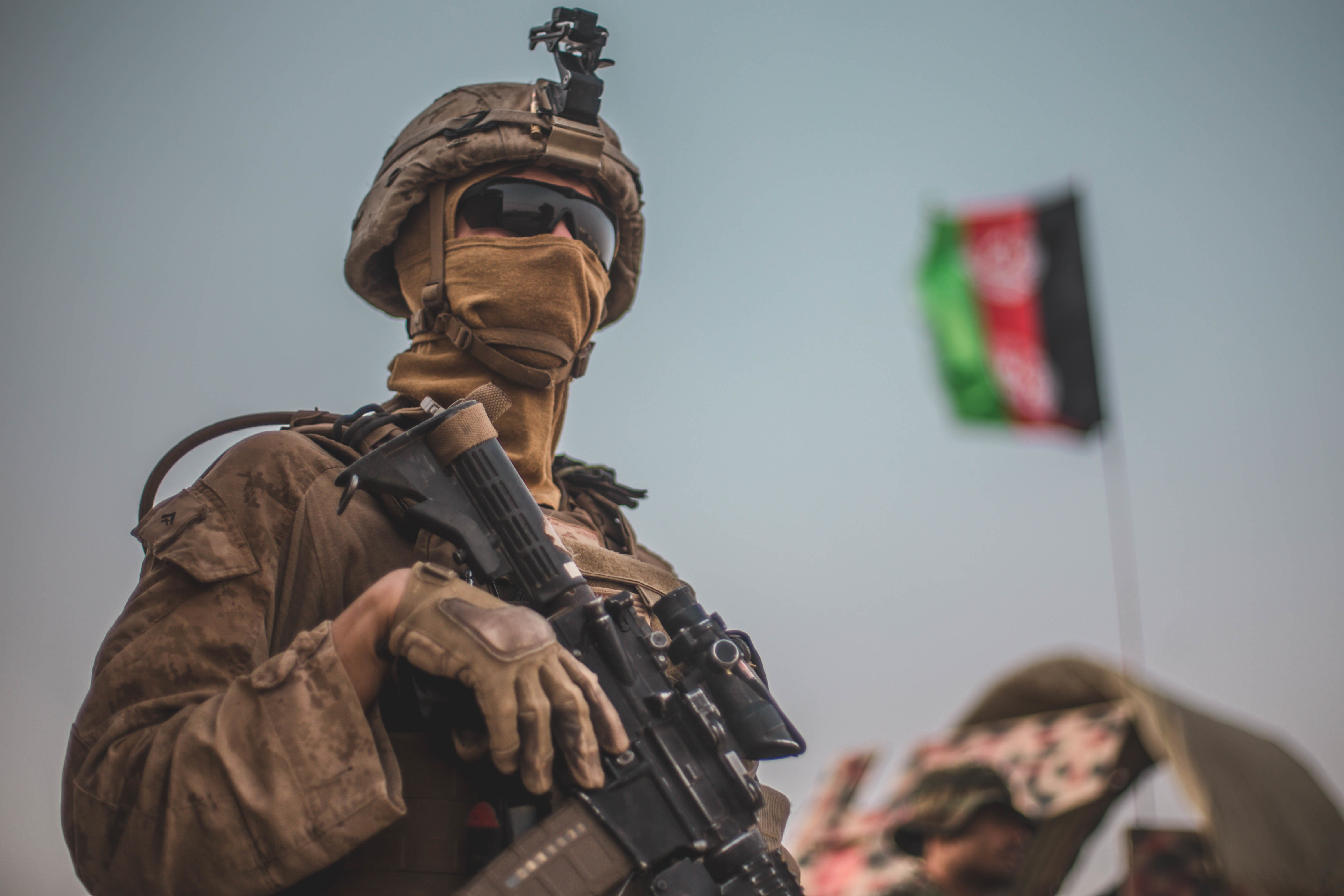
U.S. Central Command’s top officer stressed today that the military is “completely focused” on responsibly withdrawing from Afghanistan by Sept. 11, 2021, the 20th anniversary of the al Qaeda attack on the United States.
Marine Corps Gen. Kenneth McKenzie said Tuesday at an American Enterprise Institute event that the repositioning of forces shows the United States is “prepared to take any action necessary” to protect American and NATO forces as the movement of equipment and forces continues.
In testimony last week before the Senate Armed Services Committee, McKenzie said “we’re prepared if the Taliban wanted to take shots at us. Today, after [May 1], or any time during the withdrawal.” That May 1 date is a reference to the agreement made between the Taliban and the Trump administration for an American withdrawal, provided certain conditions were met. Among the conditions were no more attacks on American forces inside the country.
“Yes, we will bring additional resources in [to the region] in order to protect the force as it comes out. That’s normal in any kind of disengagement operation, and I don’t want to go into the detail of those operations right now, but we will have additional capabilities and I’m confident that we and our coalition partners will be able to extract ourselves,” he said last week.
Air Force Magazine reported Tuesday that the U.S. military would deploy additional B-52s and ground forces to the Middle East to provide security for the pullout.
Speaking at the AEI event, McKenzie added that “we’ve got a very good backbone of a plan” that is being worked out with the State Department and coalition forces. He said all activities, including maintenance or advising and assisting Afghan security forces, would be done remotely.
He said that is a “tough problem,” but there will not be American military forces “on the ground doing it.”
McKenzie said his biggest concern in the area of responsibility “is the future of refugees and displaced persons” caused by the civil wars in Syria and Yemen and the continued instability in parts of Iraq. They are vulnerable to illness ranging from cholera to COVID-19, he said. “Children, in particular, are being radicalized” as they remain in these large camps without regular education and opportunity for growth.
He added, “there is no military solution” to the problems associated with refugees and displaced persons, and it is not one that can be solved by the United States alone.
But if conditions don’t change for the better, he warned it “will be a military problem in a few years.”
On the military side, McKenzie said “kinetic engagement” with remnants of ISIS, al Qaeda and Iranian proxies in Iraq, Syria and Yemen “will not change” anytime soon. He said they are increasingly sophisticated in attacks – swarming unmanned aerial systems, firing land-based cruise missiles and conducting electronic warfare jamming.
The Houthis, which operate in Yemen and have received weapons support from Iran, have fired highly mobile ballistic missile systems.
Zeroing in on unmanned aerial systems, McKenzie said the United States and its partners are “largely on the wrong side of the cost curve” in countering a threat that is “easy to do and cheap.” He added they are increasingly used by Iran itself, its proxies like Hezbollah, ISIS and al Qaeda.
While there have been some steps to speed developing and buying systems to counter these threats more effectively and cheaply, the acquisition process remains “cumbersome.”
Similarly with mines, Mackenzie said he’ll “use any capabilities out there” to keep congested waterways, like the Straits of Hormuz and parts of the Red Sea, open so the region’s energy products can move safely through those waters. He said last week that he’s concerned about his ability to clear mines from strategic chokes points in the region like the entrance to the Red Sea or the Strait of Hormuz.
McKenzie also said he believes the harassment of shipping in the Persian Gulf by Iranian Revolution Guard craft was instigated by local commanders and not ordered by the Supreme Leader Ayatollah Ali Khamenei or the government.
Russia remains “opportunistic” in the region, hoping for increased influence, potential arm sales and continued access to warm weather ports on the Mediterranean. “I don’t see a grand design” in what they’re doing, he said.
China, on the other hand, is playing a more long-term game of building on economic presence through its Belt and Road infrastructure loans to build highways, ports and airfields. It is also offering medical assistance, including COVID-19 vaccines.
Now, Beijing’s naval presence is “very small” but with a capacity to grow, he said.
As for both Russia and China, “it is a competition, we have to recognize it” as such. McKenzie added that continued U.S. presence does pay dividends in the long run as well. He mentioned American international military education programs and joint exercises as “string that builds strong ties.”





